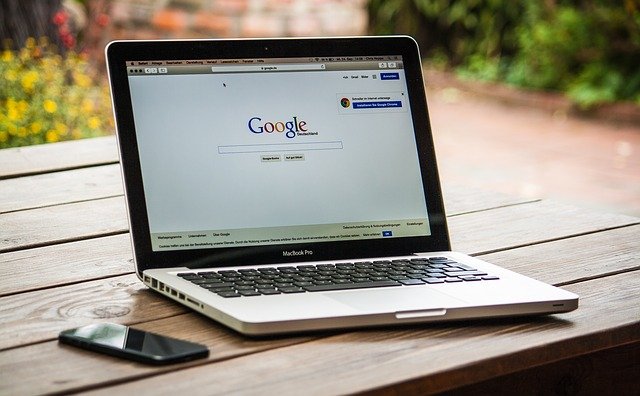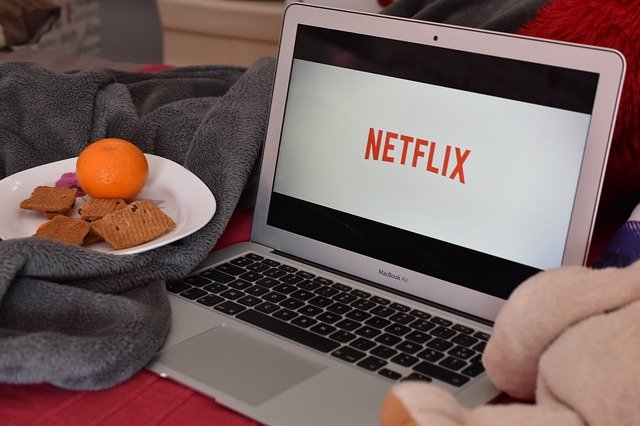As a hub of technological creativity, Silicon Valley is also celebrated as a location where someone with a brilliant idea will not only change whole markets and make a profit but also make the planet a safer place. But is that a precise image? Stories about media giants’ invasion of privacy, data hoarding, and growing income, while artists and creators fail to get by, tarnish the image.
According to writer Jonathan Taplin, we have to listen to the advice and calm down a bit from allowing massive monopolies to be the facilitators of our intelligence if we want to continue flourishing. The better thing to do with our culture will be to support the artists, not to accept their jobs free of cost like something disposable to enjoy.
But let’s have a look behind the Silicon Valley doors and explore what’s going on.
Try Audible and Get Two Free Audiobooks

Chapter 1 – The state has funded some of our greatest scientific advancements.
What is it that leads the environment of science and innovation? Is it often a clever, imaginative, and revenue-seeking businessman in their garage grinding away?
Government grants and the public sector are also the ones that come up with creativity.
For instance, take the internet; the invention that brought this invaluable instrument to existence was developed by an American engineer called Doug Engelbart in 1968. Engelbart launched his NLS system that year which featured windows, visuals, teleconferencing, the cursor, word processing, and a shared real-time editor, or “oN-Line System.”
Yet Engelbart hasn’t done any of this on his own. It was sponsored by DARPA, the US-based Defence Advanced Research Projects Agency, to establish groundbreaking technologies with the possibility for possible military use.
The NLS of Engelbart formed the backbone of ARPANET, the very first online data transmission and obtaining network, rendering it an early version of the Internet. The TCP/IP protocol suite, also produced thanks to DARPA support, was also the first to use ARPANET. As the basic template for processing and transmitting files, TCP/IP is still used now, allowing all linked computers on a network to interpret one another.
Many of the fundamental technologies we use now were not guided by benefit, but instead by government-sponsored benefits, another instance being Bell Labs.

Many telecom firms were fighting for customers for their networks at the turn of the twentieth century, contributing to an undisciplined, twisted mass of wires hung along the streets of many towns in the US.
Bell and Western Union were authorized by the Federal Communications Commission (FCC) to merge and incorporate the smaller corporations into a single consolidated structure. There was one significant requirement for the FCC: contact rates must be limited, and study and advancement that would improve humanity had to be invested on a certain amount of income.
In 1925, with the explicit purpose of developing the invention, Bell Labs was created. Owing to government services made feasible by tax money, it went on to develop the transistor, the microchip, mobile phones, among many more inventions we use every day.
But how did we come to think that innovation is fantastic for the market economy and the profit-driven tech industry, while regulators are deemed an oppressive force that is bad for business? We’re going to find out…
Chapter 2 – Libertarian politicians, while evading taxes, have taken over the tech sector.
In part, the notion of a great poor government can be attributed to a group of libertarians born in the 1980s in the US. The projects of the author Ayn Rand and the economic theory of Milton Friedman influenced many of them. As such, under Rand’s philosophy that greed and the survival of the fittest ethos are good for humanity, they were dedicated to resisting government legislation and taxes.
In the technology industry, Peter Thiel, founder of PayPal, is one of the most important influencing powers for libertarianism.
By reading and reviewing Ayn Rand’s studies, Peter Thiel liked libertarianism as a youngster. As a consequence, Thiel uses an excerpt from Rand’s book, The Fountainhead, as a key principle of his company: “Who will stop me? ”
It was part of his libertarian ideology to smash the dominance of banks and credit card firms when Thiel created PayPal in 1998, thereby resisting government controls and avoiding taxation.
Thiel’s ideals spread quickly across Silicon Valley, especially after PayPal was acquired by eBay for $1 billion in 2002. Soon, as past Paypal workers went on to build YouTube, LinkedIn, and Yelp, both businesses that helped transform the online world, Thiel’s self-branded “Paypal Mafia” took over.

Amazon CEO Jeff Bezos practices almost the identical ideology and is someone who has immensely learned from the principles of libertarianism.
In specific, Bezos took advantage of a 1992 Supreme Court decision which specifies that if there is no retail place or other physical activity in that state, a corporation does not have to pay state taxes.
So while customers can purchase stuff from Amazon in Arkansas, since there is no physical shop for the firm, it doesn’t have to pay those taxes; enabling Bezos to undermine local competition. This is a big reason why, between 1992 and 2015, Amazon was able to help put 5,400 independent bookstores and music stores out of business in the US.
It is not just Bezos who is escaping taxes: Facebook and Google are both exploiting an absence of physical existence to stop paying Uncle Sam, and as a result, the US is expected to lose about $60 billion in tax income per year.
As we will see over the next few sections, the sinister libertarian principles of the technology sector have indeed given way to dangerous monopolies taking over the internet.
Chapter 3 – Monopolies have long been a problem and threaten to jeopardize fair rivalry.
Google reportedly has an 88 percent share of all searches and advertisements on the market, while Facebook has a 77 percent share of social media. Why don’t their laws condemn such monopolization? We ought to go back to the founding fathers to address this.
Thomas Jefferson received a first-hand view of how much harm a monopoly would inflict by seeing the awful effects the East India Trading Company had on Britain as a foreign leader in Europe.
The business had become so big that they were the ones who were drafting the laws that regulated the trading routes of the country. Over everything, their revenue theory resulted in the 10 million deaths caused by the Great Famine of Bengal in 1770, after pressuring producers to produce opium instead of grain.
The Bill of Rights did not provide provisions regarding monopolies, despite Thomas Jefferson’s great attempts.
Alexander Hamilton felt that politics should be able to govern money, never the other way around. Although Jefferson was suspicious of the influence that a new National Bank could exert, the financial institution was supported by Hamilton: the government-controlled only 20 percent of the bank’s assets, while private corporations such as Hamilton and his wealthy peers monopolized the remainder.
This is a significant part of why, like the Bill of Rights, founding principles never contained safeguards against unfair monopolies. A hundred years later, in 1890, one such legislation was officially passed: the Sherman Act. It claimed that penalties and incarceration could be levied on those trying to monopolize some field of commerce.
The legislation was used by Teddy Roosevelt to smash the attempted union between John D. Rockefeller’s Standard Oil and J.P. Morgan’s Northern Securities. According to Roosevelt, it damages the country and free market when a limited group of enormously wealthy individuals joins together for the primary aim of obtaining money and influence.

While this was a leap in the correct direction, Robert Bork, the judge, and legal expert, continued to take a major step backward towards the US.
As a tutor at Yale Law School, where he gave seminars on antitrust law, Bork gained a reputation for himself in the 1960s. He said that consumer protection was the main indicator of an economy. In the economic viewpoint of Bork, monopolies were inherently favorable to customers, so antitrust laws were negative.
His lectures became so influential that he would continue to work under both the regimes of Nixon and Ford, at which time the filings of the Sherman Act fell dramatically, excellent news for big companies.
Today, the ideas of Bork still influence the Justice Department’s antitrust department, the government branch responsible for marketplace policing and maintaining fair competition.
Chapter 4 – To manipulate politics in their favor, large tech giants use their market supremacy.
The 62 richest individuals on the Forbes Top 400 list had as much income as the poorest 50% of the world’s population as of 2017. It is also worth remembering that eight of the top ten richest individuals make their money from technology.
One means of making money online is by collecting rent.
From a financial perspective, rent is the cash received when someone owns a valuable and attractive asset, such as the Google-controlled advertisement space. Because so much of what internet consumers are subjected to is regulated by Google, they can set the prices for how much advertisers are paid.
Similarly, Amazon owns a large majority of the book and printing industry as a result, publishers that do not afford not to sell to Amazon consumers can claim outrageous prices.
These are only two broader examples of how, by rent-seeking, big tech companies get wealthy. Another way to raise income is by leveraging their size and influence to place pressure on Washington.

Google is the biggest company in the US if we measure size by market capital (or the cumulative value of the stock of a company). It dominates five of the most influential websites, as well as all but one of the top 14 commercial internet features, and uses its remarkable technical supremacy to affect federal legislation: Google spends $15 million on lobbying per year.
What is even more alarming is Google’s effect on the development of public perception. In 2012, with a complete endorsement from the film community, the Stop Online Piracy Act (SOPA) was presented in Congress. It urged users on Google’s homepage that year to “tell Congress” to vote against SOPA. Why? Since a major part of Google’s market is the search for unlawfully downloaded songs and videos.
An unprecedented 1.8 billion persons viewed this letter, all of which overwhelmed congressional members’ email servers before the bill was eventually dropped.
Largely thanks to the numerous retired Google staff who serve in the federal sector, Google still has considerable control over regulators: at one time or the other, 53 employees worked for both Google and the White House.
Chapter 5 – Crime is a huge corporation stealing from musicians and producers.
In 2005, Megaupload, a site that authorized everyone to upload a movie or music file while offering incentives to those who uploaded significant amounts of files, was launched by an entrepreneurial man called Kim Dotcom.
Dotcom’s operation has received about 12 billion individual files in just two years, generating over $174 million in sales. Due largely to the distribution of illegal material, Megaupload users accounted for 4 percent of global web traffic.
Yet Megaupload was just the beginning: by 2015, the International Chamber of Commerce reported $1.7 trillion in the number of counterfeit products shared around the world, more than 2 percent of the entire economic production of the world.
But who’s taking advantage of this trillion-dollar industry? The only assurance is that it’s not the individuals who make the products.
Many musicians who used to make a decent living from royalties have been struggling to get by since the advent of internet piracy.
Take Levon Helm, The Band’s guitarist and singer, who also performed in the 1960s with Bob Dylan. Helm wasn’t one of the huge rock stars, but members of The Band were able to survive easily off the profits from their records thanks to their continuing success.
But in 2000, Napster, a file-sharing site, appeared and it all changed. Immediately, Helm and the other members of The Band who didn’t receive songwriting bonuses saw their earnings decline to virtually zero from around $100,000 a year.

In 1990, Levon Helm was diagnosed with throat cancer, and while singing caused him considerable discomfort, he had to start performing live to generate the cash for his medical expenses.
Helm is far from being the only one in a case like that. The Interactive Advertising Bureau reported that infringing material expenses around $2 billion a year for each entertainment market. It also reports that an additional $456 million will be created per year only by the advertisement of licensed material if illegal material were to be removed.
The sad thing is that people are listening to more music and watching more videos, and still they make less money than ever before for many of the musicians who perform these works.
Chapter 6 – In the irresponsible search for data, free utilities frequently violate a user’s privacy.
In today’s wired world, there is a new catchphrase: If you’re not the consumer, you are the commodity. It’s a term that means that no portion of the internet does not do any kind of business. This company also includes data processing, and it is corporations such as Google and Facebook that are in the frontline of this data gathering.
Many individuals also see Google as a helpful business that provides a free tool to help them discover what they’re searching for. But the fact is that they gather as much information from you as they can any time you visit Google, which they sell to someone else in exchange.
It was an immediate hit since Gmail was introduced by Google. Free with unrestricted storage email service! What most people are unaware of is that Google scans each message to tailor the commercials it sends you for the price of this service. If people understood this when they signed up, there would be far fewer users.
Google goes for data like most harvesters and thinks about the consequences afterward. This is why it took them two years to have a delete button for Gmail. And that’s why, when developing their Street View tool on Google Maps, they did not seek consent until photographing everyone’s land and connecting it to an address.
Another business that capitalizes on your knowledge is Facebook, with no regard to being responsible for it. Their slogan used to be “run quickly and smash stuff,” which means that then they would think about covering up their destruction.

The success of Facebook comes from allowing individuals to portray an idealized image of themselves while harnessing the simple desire of a person to be “liked.” This has resulted in 1.23 billion daily users, all of whom create infinite quantities of content and private information.
In 2014, for an average of 17 minutes a day, Facebook users produced data. If that is compounded by 1.23 billion people, that’s about 40,000 years of data per day and 15 million years of data in 2014 alone.
Facebook, sadly, has a pretty bad consumer privacy history. They created Beacon in 2007, an app that told your friends if you ordered something on a partner platform. Yet Beacon was an opt-only program, meaning that if you did not want all your mates to hear about your transactions, you had to figure out about it and turn that off.
Obviously, people were very angry about Beacon, but Facebook declined to uninstall it until they had the data worth several weeks.
Chapter 7 – To build a sustainable world for all, art and culture are key.
Without big, intrusive, and unethical tech companies, is it possible to have a free Internet? Are we able to deter giants? The response to this is: Yes, we can.
But first, we need to work cooperatively – collaboration has so long been at the core of the progress of mankind, and it will continue to benefit us now.
Since they cooperated, our oldest predecessors excelled. Some hunted while others kept the fire going at the shelter, and it will continue to see us flourish in this kind of partnership.
The drop in industrial employment has struck many places across America hard. In specific, one town was Chattanooga, Tennessee. Yet fortune seemed to be laughing at the city. The Volkswagen car company established a production plant there, after developing a smart grid that would accommodate their needs.

This system had the additional advantage of providing a high-speed fiber-optic network for the town’s citizens. The concern was that this would ruin Comcast’s monopoly on the internet in the region, so the media company threatened to sue the city to close down the system. Having a strong organization like Comcast might fear some people in your region, but the people of Chattanooga grouped together and their energy won the day and they had to keep their system.
So groups that work together are essential to battling these big corporations. Art and literature are other potent weapons. It will shed light on our oppressors and encourage us to see how we have to strike back. Take the 1932 book by Aldous Huxley, Brave New World. It represents a future with so much information that is freely accessible that it is viewed as distracting, meaningless noise. People do not read anymore, and facts are considered little more than meaningless instant gratification bits.
Rings a bell? Huxley’s piece of fiction, as we find ourselves on the edge of knowledge saturation, is now frighteningly close to being real.
If we don’t take steps and stop until it’s too far, it’s authors like Huxley who will sound the bell, warning us of where we are going.
But we do need a well-considered plan…
Chapter 8 – It could be enough to fight back against tech companies if artists collaborate to regulate their material.
While the internet has proved to be less than useful to many musicians who learn that their art is unlawfully published, it can also be the outlet that helps them to take back ownership of their careers.
Streaming sites such as Netflix and Spotify have been extremely popular in past years, but they have become very poor at producing money for musicians. But to remedy this, there could be a way for musicians to work together.
By charging nominal subscription fees, both have drawn huge numbers of consumers. This sums up to a lot of money because since these providers have a business structure that doesn’t cost them much to add additional clients, the issue arises as to how the cash can find its way to the artists, such as the $558.9 million Netflix made in 2017.
Up until now, streaming platforms such as Netflix have become very confidential on the agreements they make with manufacturing firms, so that in discussions they will continue to have the edge.
However, it could be feasible to bring the advantage back into the hands of artists and producers through collaboration.

Cooperatives such as Magnum Photos are still holding strong, founded by a group of twelve photographers at the end of WWII. Instead of turning them over to publishers, members of this co-op kept the copyright to their works. This has made it easier for artists to continue to make money off their art and to market the same photographs to numerous media around the world.
This sort of artist-controlled structure is also something that artists could gain from: a band could release their album on Bandcamp, which takes about 15% of the sales received, then they will release it on Spotify Premium a month later, which takes about 30%. A month back, the album can be played on the free versions of Spotify and Youtube, which take even longer.
Enthusiastic supporters won’t wait, because they’re going to pay for Bandcamp’s purchasing prices, while more patient fans are going to wait for the streaming version. They would no doubt see a bigger payday if musicians had this kind of influence, but the only way they would wrest leverage away from powerful powers like Spotify and Google is if they join together as part of an artist-run co-op.
There is always the potential for a more equitable future, even if the companies are making the decisions today. What we need to do is form an alliance and get our fates under control.
Move Fast and Break Things: How Facebook, Google, and Amazon Cornered Culture and Undermined Democracy by Jonathan Taplin Book Review
A libertarian philosophy that has kept billions of dollars away from the regimes that originally subsidized the technologies is fueling many giant tech firms. They’ve nourished an illicit production scheme with their dishonest domination in the industry that has held billions of dollars out of the hands of performers, singers, and other high-quality content producers. They have also developed a frightening level of control on politicians thus growing their penetration into internet users’ personal lives. This has contributed to detrimental effects that aim to control our access to data, thus critically harming the livelihoods of musicians and the creative industry. It would need groups of like-minded people, musicians, and residents to take back ownership of their online lives and jobs if there is to be a path forward.
Try Audible and Get Two Free Audiobooks
